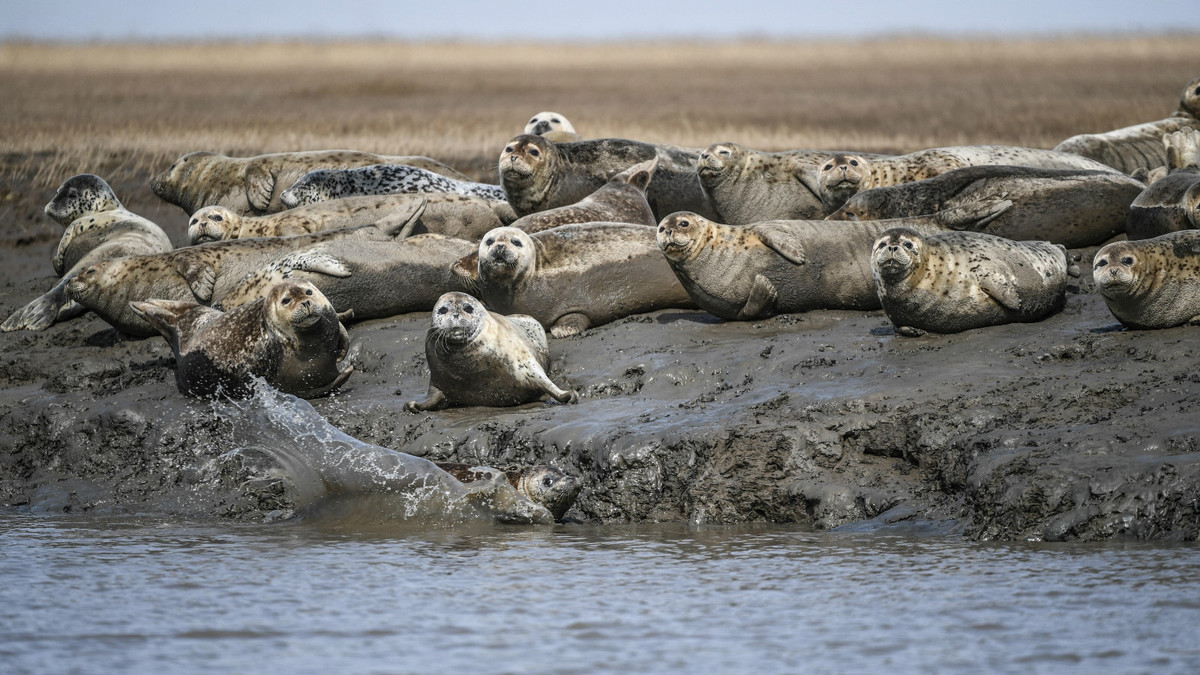Rise in poaching of spotted seals poses threat to maritime ecosystem


The origins of many marine mammals in aquatic theme parks are obscure, so protection should be strengthened, experts said. Xin Wen reports.
Tian Zhiwei was surprised when he saw a spotted seal pup at the port in the harbor city of Tangshan, Hebei province, in February, because the reclusive marine mammal is not usually seen in the area at that time of year.
Exhibiting aggressive behavior, the lost 2-month-old pup stayed in the water for the whole night, so Tian decided to bring it to his rescue station near Jingtang port in southeast Tangshan to keep it safe.
As a novice at feeding wild marine mammals, Tian experienced some initial difficulty, but he quickly discovered that the pup - who he named Gousheng, or "lost kid" - would happily eat a mash made from fish and potatoes.
In March, after taking care of Gousheng for four weeks, Tian released the pup into the Bohai Sea at Panjin, Liaoning province. The area is close to Liaodong Bay, one of eight recognized spotted seal breeding grounds in the world.
Tian's caring approach and subsequent release of the pup was unusual, though. In recent years, a growing number of seal pups have been illegally removed from the waters of the bay off the coast of Dalian, a major seaport in Liaoning, and sold to aquariums.
China has the largest number of aquariums in the world. In 2017, there were nearly 200, according to data from the second China Aquarium Development Forum held in Qihe, Shandong province, in November that year.
The range of species and the number of protected marine mammals being bred in these facilities are also among the highest on the planet.
Statistics collated by Shenzhen Ocean World, one of China's largest marine theme parks, show that the number of aquariums mushroomed from 2014 to 2016, surpassing the total number in the previous 27 years.
As a result, demand for spotted seals and other "show mammals", such as sea lions, dolphins and white whales, has soared.
However, experts say questions remain about the sources of the mammals and the legality of breeding programs, and there are serious concerns about the quality of animal welfare in aquariums.
"The problem has existed for a long time," said Lu Zhichuang, a researcher with the Liaoning Ocean and Fisheries Science Research Institute. "Because the law stipulates that wild animals cannot be bought or sold, many aquariums have sought other ways to obtain or breed marine mammals."
In addition to accepting rescued marine mammals, some of the nation's biggest aquariums have founded reproduction bases so they can breed large numbers of aquatic creatures, he added.
- Macao thrives as collaboration deepens
- Beijing reiterates strong opposition to US arms sales to Taiwan
- Attack in Taipei injures 9, including 4 in critical condition: local media
- Ministry to launch month-long program aimed at promoting youth employment
- National health body asks consumers to read nutritional information on food labels
- China's top cyberspace regulator launches drive against capital market misinformation




































